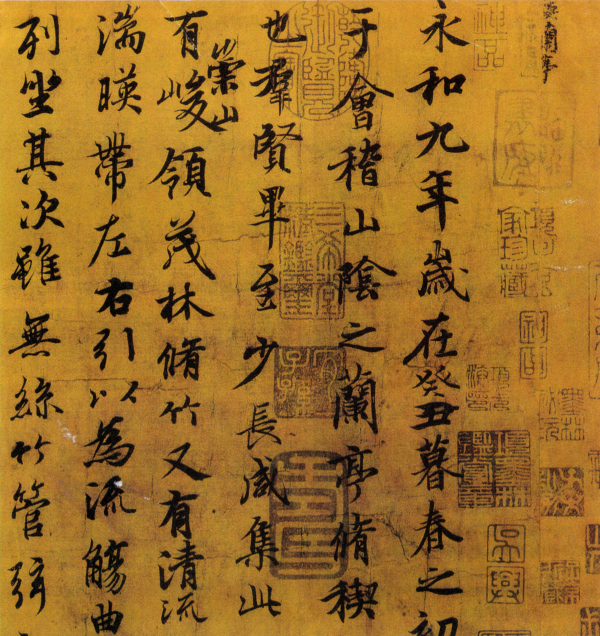"Zhejiang Cultural Imprints" is a series of introductory articles introducing some of the most influential cultural heritages and cultural imprints in Zhejiang province. Today, we will give you some brief introductions about the "Preface to the Orchid Pavilion, by Wang Xizhi", who is known as 'Sage of Calligraphy'.

(Preface to the Orchid Pavilion, by Wang Xizhi)
The Lanting Xu (Preface to the Orchid Pavilion) is a famous work of calligraphy by Wang Xizhi (301 CE to 363 CE). Written in an elegant semi-cursive script and underpinned by deep philosophical thinking, it is among the best known and often copied pieces of calligraphy in Chinese history and also a famous piece of Chinese literature. It is revered as the best running calligraphy. Wang Xizhi is respected as 'Sage of Calligraphy' or 'Super Master of Calligraphy'.
Wang Xizhi (303-361), also known as Yishao, was born in Linyi, Shandong province, and later moved to Shaoxing, Zhejiang province. His most well-regarded work is Preface to Lanting Pavilion Collection.
Written in a semi-cursive Chinese script, Xing Shu, which means "fast hand-writing", the Preface comprises 324 words. It narrates the beauty of the scenery around the Kuaiji mountain of Lanting and the happiness of the gathering that prompted Wang and his friends to meet at Lanting to write poems celebrating their ancestors.
Wang's influence on Chinese calligraphy is as fundamental and far-reaching as Shakespeare's influence on the English language and English literature. The Chinese calligraphy derives from the written Chinese language, which is composed of pictorial images. Traditional Chinese calligraphy requires nothing more than the "Four Treasures of the Study" - a writing brush, an ink stick, an ink slab, and paper. Calligraphy in China is not only a form of art but an integral part of Chinese culture.




